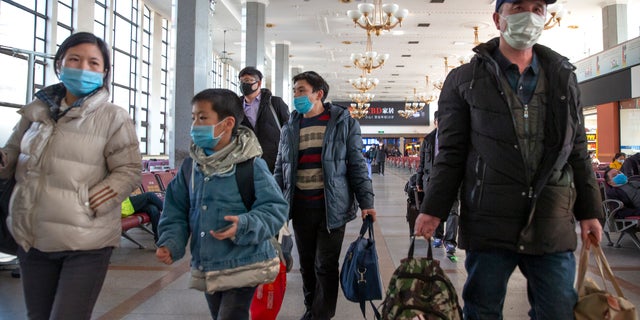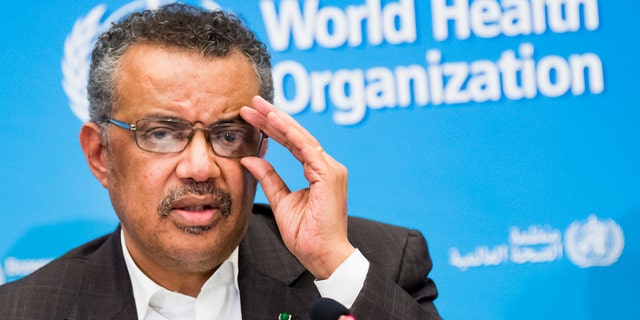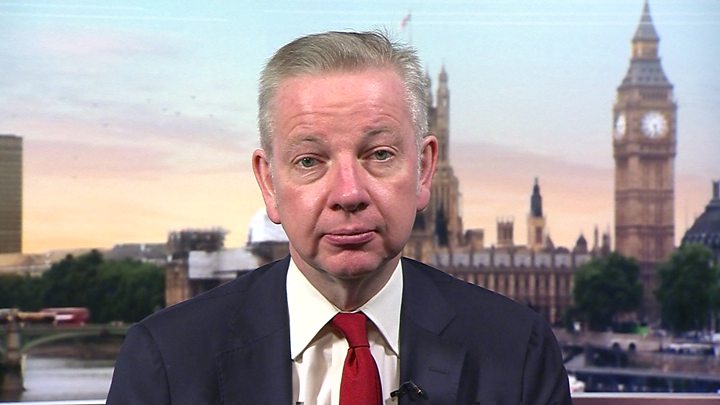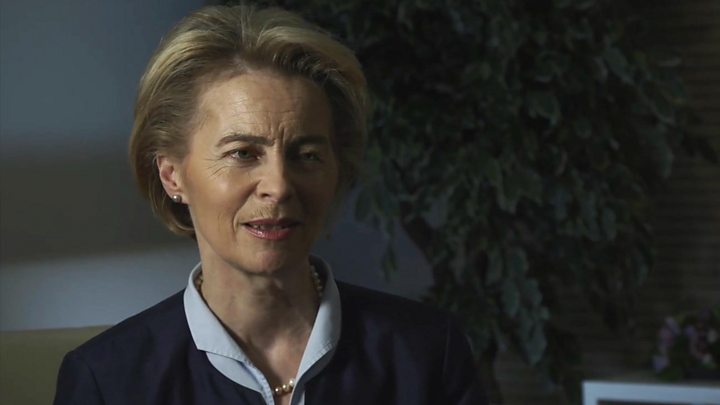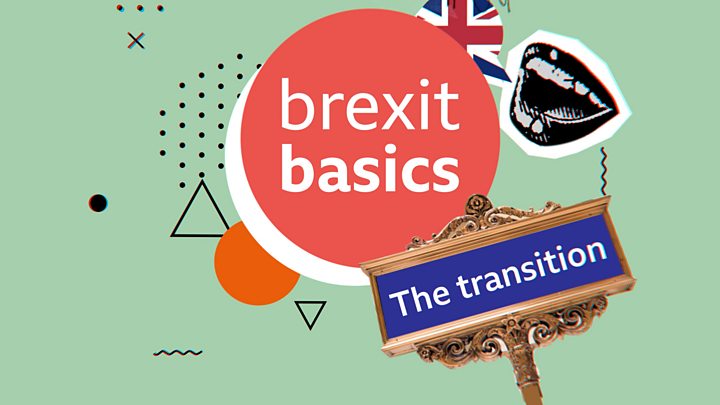Andy Rain EPA-EFE/REX/Shutterstock
Brexit Day has arrived. At 11 p.m. in London, Britain formally leaves the European Union. Here’s what to know:
● Prime Minister Boris Johnson kicks things off with a Cabinet meeting in Sunderland, the first city to back Brexit in 2016.
● Johnson will carefully calibrate his celebration tonight, focusing on unity and moving forward in a televised speech; hardcore Brexiteers have planned a more raucous party in Parliament Square.
● The biggest change? British members of the European Parliament lose their jobs. Otherwise, everything will look pretty much the same until at least the end of 2020.
LONDON — Well, that wasn’t easy. But after 1,317 days, three prime ministers, two blown exit dates, dozens of votes in Parliament and years of negotiation, Britain will finally leave the European Union on Friday.
Brexit Day — or Brexit Night? — is finally here. At 11 p.m. London time, or midnight in Brussels, Britain is officially out, after almost five decades with the closest of ties to Europe.
The United Kingdom will now go it alone — and either roar ahead with Prime Minister Boris Johnson’s vision for a can-do “Global Britain,” or the country will find itself diminished, economically, and as a solo player on the world stage.
The British prime minister and Brexit cheerleader has been searching for the right tone to mark such a profound moment in Britain’s history, at a time when the country remains deeply divided on the issue.
He doesn’t want to gloat — as pollsters find that more than half the country oppose Brexit. But he does want to mark the moment.
[How to mark Brexit Day? Boris Johnson is searching for the right tone.]
Johnson on Friday will hold a meeting with his top leadership team Sunderland in the north of England, a symbolic gesture given that the city was the first to declare in favor of Brexit during the 2016 E.U. referendum.
Later in the evening, an hour before the official departure, Johnson will broadcast a prerecorded speech to the nation from his office in 10 Downing Street, where he will attempt to strike an upbeat note and also promise to heal a divided country.
There won’t be any bongs from Big Ben — it’s under renovation. But there will be a light show that will focus on the union — England, Wales, Scotland and Northern Ireland — and a new 50-pence coin will enter into circulation.
Britain’s leaving will profoundly change its relationship with Europe and the rest of the world. But that will barely be felt by the average citizen, as Britain enters an 11-month transition period, where it will continue to obey the rules of the E.U., even though it’s no longer helping to make them.
[What changes after Brexit Day on Jan. 31?]
Through the end of 2020, negotiators in Brussels and London will seek to hammer out a new trade deal and come to terms with pacts for data-sharing, security, fisheries, aviation, banking and much, much more. Or at least that is the plan.
Kenzo Tribouillard
AFP via Getty Images
European Commission President Ursula von der Leyen, European Parliament President David Sassoli and European Council President Charles Michel arrive for a meeting near the European Parliament building in Brussels on Friday.
A joint letter published on Friday by E.U. leaders — European Commission President Ursula von der Leyen, European Council leader Charles Michel, and European Parliament President David Sassoli — signaled that they will fight for their interests in upcoming talks.
“Without the free movement of people, there can be no free movement of capital, goods and services,” they wrote. “Without a level playing field on environment, labour, taxation and state aid, there cannot be the highest quality access to the single market. Without being a member, you cannot retain the benefits of membership.”
E.U. citizens in Britain, and Brits living elsewhere in Europe, will benefit from freedom of movement until the end of the year, but they will need to apply for residency rights if they plan to continue living outside their home country. The estimated 3.6 million E.U. citizens who call the U.K. home will have to apply for “settled status” by next June, otherwise they will be living in the country unlawfully.
[One of the biggest impacts of Brexit? An end to freedom of movement.]
The fact that the U.K. is still deeply split over the issue of Brexit is reflected not just in the polls, but also in Friday’s celebrations.
Steve Baker, a leading Brexiteer, told Parliament: “I will celebrate. I will allow myself a smile, I’ll allow myself that glass of champagne, I will enjoy myself. But I will celebrate discreetly, and I will celebrate in a way which is respectful of the genuine sorrow that others are feeling at the same time.”
Nigel Farage, leader of the Brexit Party, is hosting a party in Parliament Square. He tweeted on Friday, “At last the day comes when we break free. A massive victory for the people against the establishment.”
Alastair Grant
AP
Free apples with the Union Jack are handed out to promote British produce in Parliament Square.
There are also a number of pro-E.U. events around the country. In Dundee, supporters are gathering to ask the E.U. to “Leave a light on for Scotland.” In Bournemouth, people are meeting in the town square to “Shine A Light For Our Rights.” Pro-E.U. supporters in Oxford are gathering outside of the town hall, where they will hand out croissants and hold a candlelit vigil.
In Northern Ireland, there’s a protest planned in Armagh, which is close to the border with the Republic of Ireland.
In the 2016 Brexit referendum, England and Wales voted to leave, and Scotland and Northern Ireland voted to remain.
In Brussels — the home to Brits who have devoted their careers to the European Union, and to the Europeans who have lived and worked alongside them for decades — there were few celebrations planned Friday, with all but a handful of Brexit Party lawmakers mourning the departure.
The U.K. flag was still flying outside the E.U. headquarters on Friday, with plans to lower it, quietly and unceremoniously, sometime between Friday night and Monday morning. Janitors have been instructed to take away the British seat at E.U. meeting tables over the weekend, now that only 27 chairs will be needed. E.U. security staff are scrubbing their databases on Friday, so that British diplomats can no longer access internal E.U. documents or use their ID cards to enter E.U. buildings. Already on Thursday, an email was sent to E.U. staffers reminding them that they should no longer share documents with British officials.
Some commemorations started early. On Thursday, the city of Brussels lit the 18th-century Grand Place in the red, blue and white of the Union Jack, wheeled out a bright-red British telephone booth where visitors could take photos, and threw a concert with British hits.
Geert Vanden Wijngaert
Bloomberg
Brussels’ Grand Place is lit with the red, white and blue of the Union Jack on Thursday.
The Brussels public transportation system made a video with a wistful soundtrack that highlighted all the tram stops in the city that are named after British people and places — Liverpool, Churchill, Montgomery — many of which commemorate Britain’s role in liberating Belgium from Nazi occupation.
“Mind the gap when leaving,” the video ended, a play on the frequent warning on the London tube.
">The one cheerful group was the Brexit Party delegation of European lawmakers, many of whom marched out of the European Parliament for the final time Friday morning waving British flags and accompanied by a raucous bagpiper. (Never mind that bagpipes are most-commonly identified with Scotland, which may yet decide to break free of the United Kingdom in a bid to rejoin the E.U..)
“Yay, Brexit!” they chanted.
Others in Brussels were less “yah” than “bummer.”
In Place Luxembourg, the bar-ringed square outside the European Parliament building in Brussels, a British member of the European Parliament, Magid Magid, gathered supporters for a “Brexit’s S***, but Let’s Party Anyway” event on Thursday evening.
[Adieu, E.U.: British reps pack their bags as European Parliament approves Brexit]
Braving a Brussels drizzle, Magid pretended to officiate weddings between British citizens and E.U. nationals to help the Brits keep E.U. citizenship. Two Mini Coopers festooned with European flags and the phrase “Bollocks to Brexit” were parked near the bars.
“There is now a nasty political culture, and I really think things will get worse in the coming years,” said Calum Thomson, 24, who was sipping beers on Place Luxembourg on Thursday night as he wore the blue, gold-starred E.U. flag as a cape around his neck.
He said he was going to French and Dutch classes four nights a week — after work as an intern at a Brussels think tank — because he didn’t want to return to Britain. He said he was Scottish and in favor of breaking free and rejoining the E.U.
Birnbaum reported from Brussels. Quentin Ariès in Brussels also contributed to this report.
Read more
Adieu, E.U.: British reps pack their bags as European Parliament approves Brexit
What changes after Brexit Day on Jan. 31?
One of the biggest impacts of Brexit? An end to freedom of movement.
How to mark Brexit Day? Boris Johnson is searching for the right tone.
Today’s coverage from Post correspondents around the world
Like Washington Post World on Facebook and stay updated on foreign news
https://news.google.com/__i/rss/rd/articles/CBMieGh0dHBzOi8vd3d3Lndhc2hpbmd0b25wb3N0LmNvbS93b3JsZC9ldXJvcGUvYnJleGl0LWRheS1sYXRlc3QvMjAyMC8wMS8zMS83YmQ3YmYzZS00MTEzLTExZWEtOTljNy0xZGZkNDI0MWEyZmVfc3RvcnkuaHRtbNIBhwFodHRwczovL3d3dy53YXNoaW5ndG9ucG9zdC5jb20vd29ybGQvZXVyb3BlL2JyZXhpdC1kYXktbGF0ZXN0LzIwMjAvMDEvMzEvN2JkN2JmM2UtNDExMy0xMWVhLTk5YzctMWRmZDQyNDFhMmZlX3N0b3J5Lmh0bWw_b3V0cHV0VHlwZT1hbXA?oc=5
2020-01-31 13:05:00Z
52780580075194




